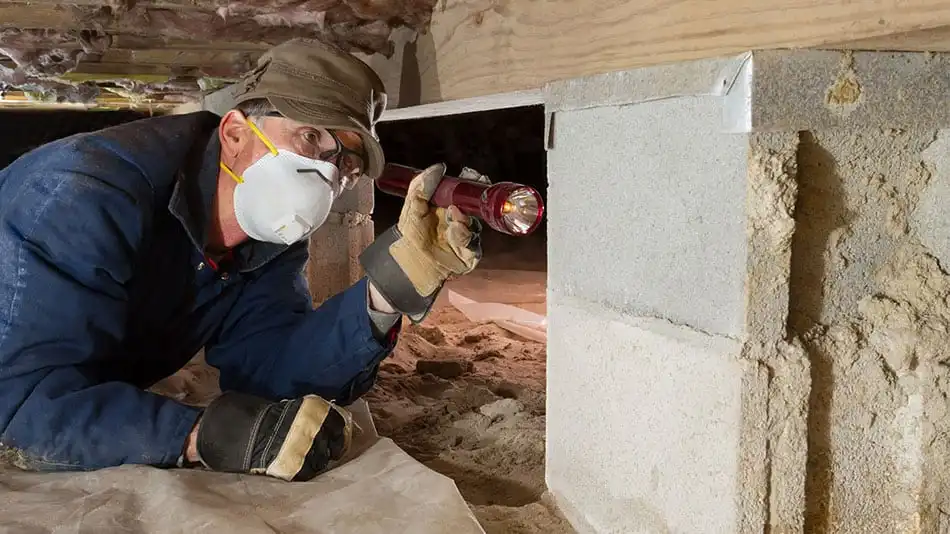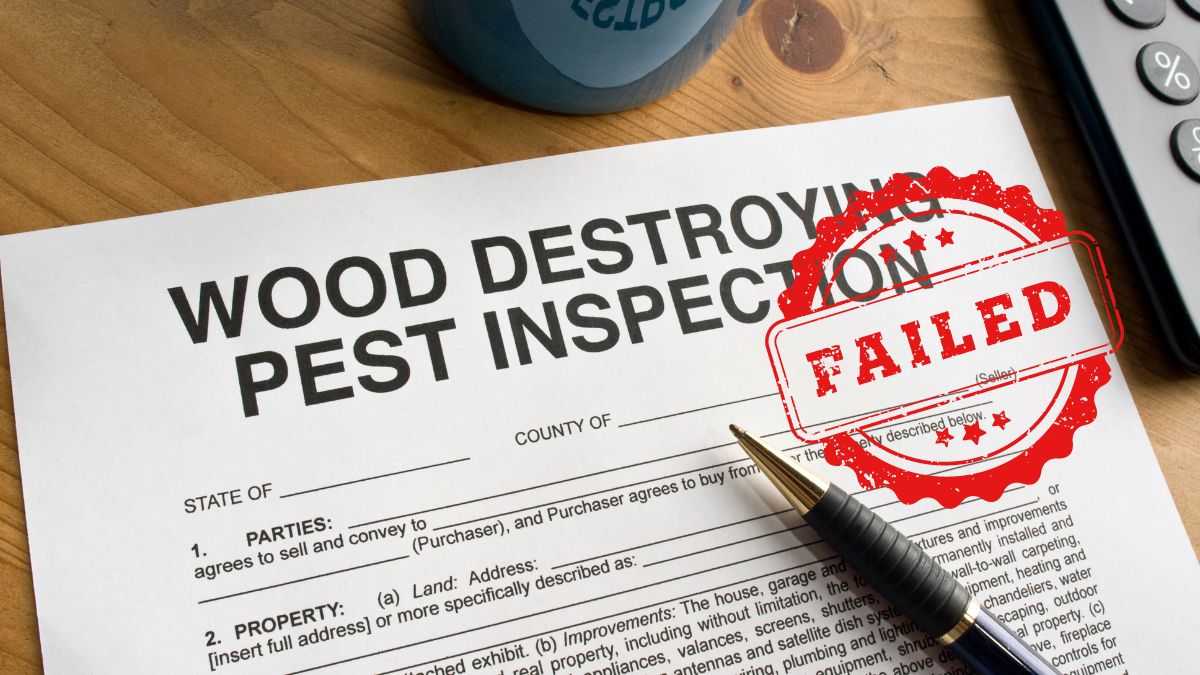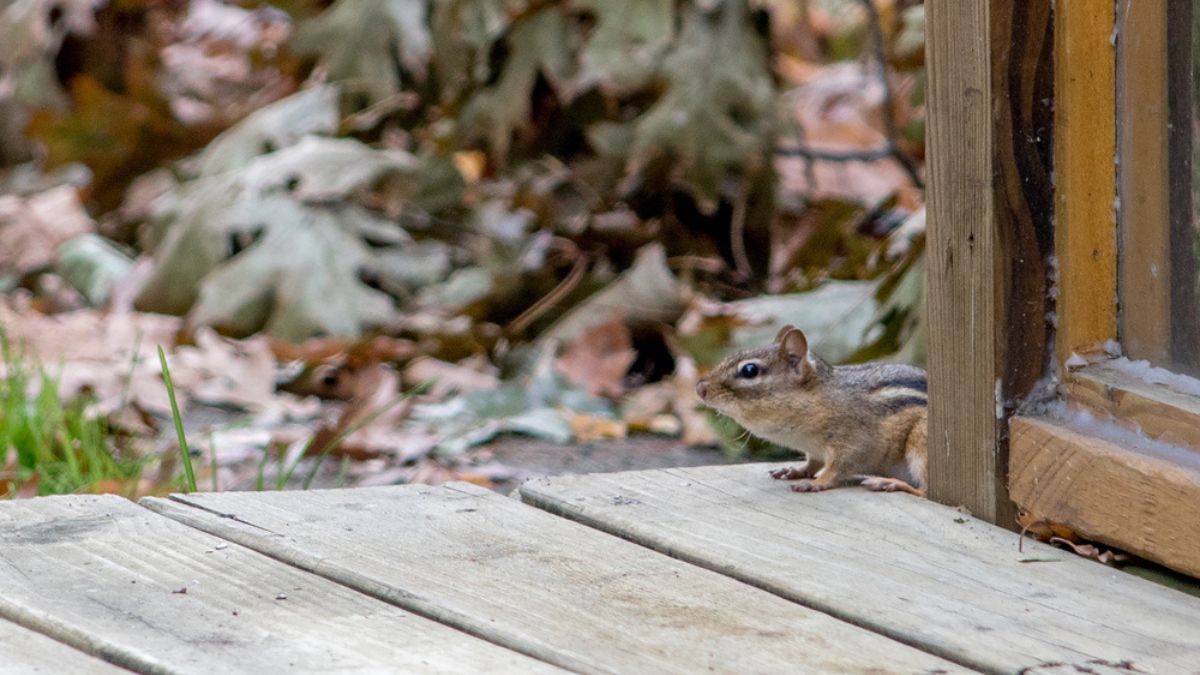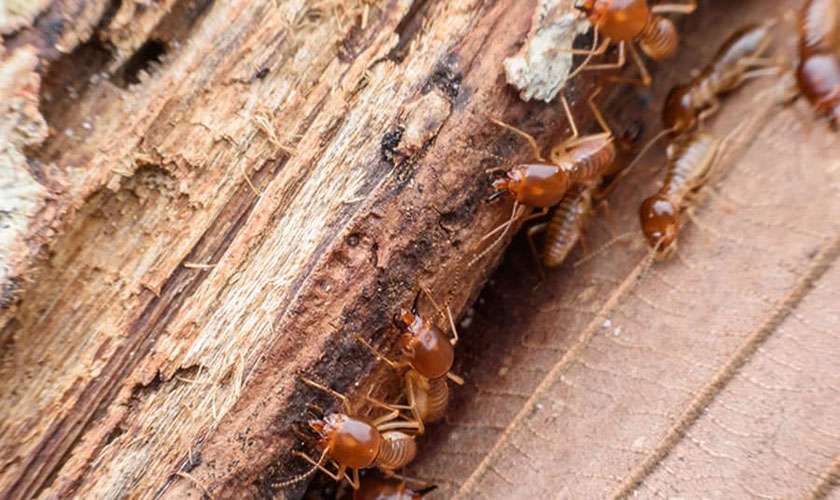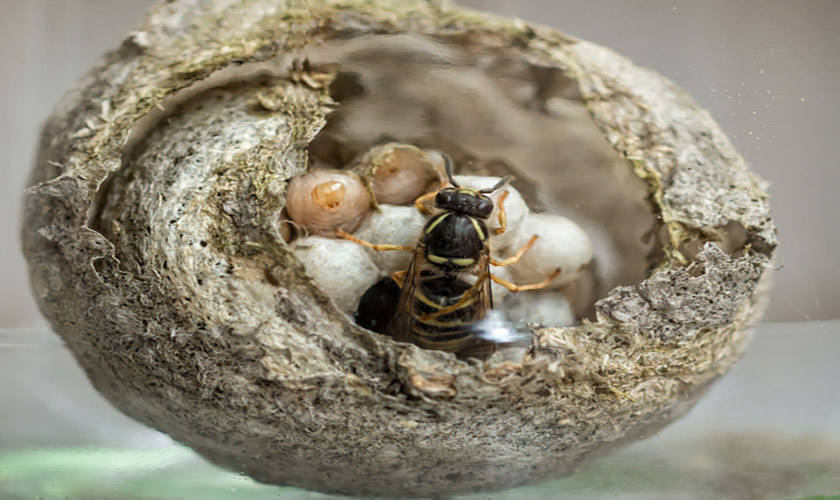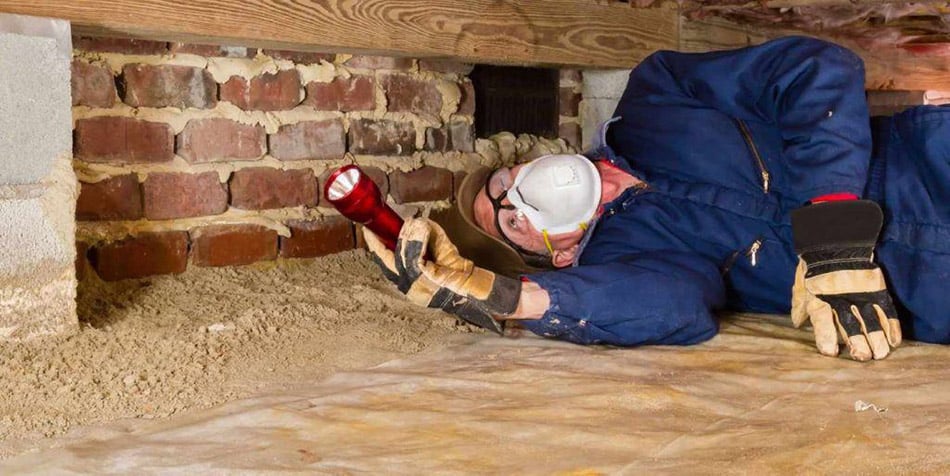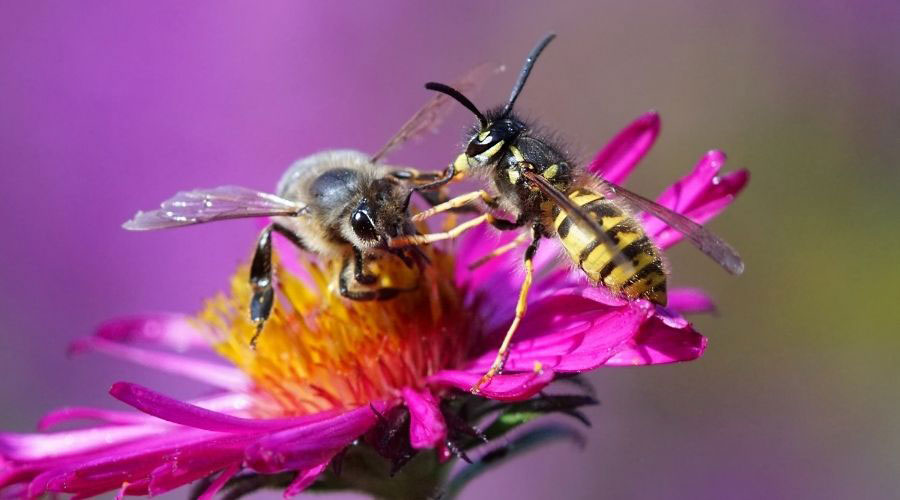
It’s a nice summer day, you’re sitting out on your porch, and then a pain shoots through your arm like you just got poked with a needle. Yes, wasps, bees, and hornets can be a bummer when you are trying to relax outside in the summer. Is a bug zapper the solution you’re looking for?
A bug zapper will kill a wasp, bee, and hornets. They can help eliminate dozens of insects immediately and reduce your property’s bug population.
Bug zappers are also the most effortless way to reduce the number of insects in your yard. There won’t be a need to chase wasps or mix certain chemicals to eliminate them.
Get FREE quotes from licensed pest control technicians in your area today. Whether you need spraying for ants, roaches, spiders, ticks, mosquitos, or bed bugs, We Can Help! All technicians are screened, licensed, and insured.
But the question is, will they fly around when the zapper is on? Bug zappers are most effective at night, and you will be hard-pressed to find a bee, hornet, or wasp flying around in the dark. You will get a few in the late morning or morning when it’s partially dark.
Read on as we explore everything you need to know about bug zappers and how they affect wasps, bees, and hornets.
Are Bees, Wasps & Hornets Attracted to Bug Zappers?
Bees, and most stinging bugs like wasps and hornets, have an innate positive phototactic response to light, so if there are bees out at dawn, they will fly towards the zapper.
Most flying insects, including stinging bugs, love the light, but not all bugs fly at night. A bug zapper will kill bugs indiscriminately, so you must consider what type of bug you are trying to eliminate.
Other things attract these insects. If you’re trying to get rid of bees, wasps, and hornets, here are a few other things that will attract them.
What Else Attracts Bees, Wasps & Hornets?
1. Humans
Wasps are attracted to the scent and bright colors, and humans like to wear perfume and very noticeable clothes. Now, the human scent is not something that attracts wasps.
If you are going into an area known to have wasps, bees, or hornets, you should wear white clothing and skip the perfume.
2. Picnic Leftovers
Wasps have a taste similar to many humans, including meat and sugar. If there are leftover food scraps at a picnic table, wasps will come over due to their attraction to protein-based foods. They are also attracted to sugar, which you can find in sugary soda drinks.
So, to deter wasps from bothering you at your family picnic, keep any meat in a closed container and opt for sugar-free beverages. Avoid leaving any leftover food in your yard, or always clean up if leaving traces of food can’t be avoided.
3. Plants
Most likely, the plants you have chosen bring flying stingers to your yard. Fruit trees are an attractant, just like brightly colored flowers attract wasps and bees. Placing a bug zapper right beneath these trees is an effective way to eradicate the insects.
4. Garbage Cans
Open garbage cans with rotten meat are a massive draw for wasps drawn to the protein. Letting moisture enter the cans and leaving them open is also a big no-no. Insects will see it as a water source and attract other pests looking for a drink.
5. Untreated Wood
Damp and untreated wood is a staple to a wasps nest; they will chew it up, turn it to pulp, and use it to build their nest.
Where is the Best Place to Hang a Bug Zapper?
It is a satisfying sound, the zap-zap-pop of a bug zapper working, but it may only be music to your ears. If you have an outdoor entertainment space, your guests might not like hearing the sound of dying bugs. They can also be an eyesore to some people.
First, it’s essential to keep the zapper away from any place you will be eating, kids playing, or a pet can get to it. It would be best to hang the zapper as high as possible, and it needs to have a plug, so an electric source nearby is essential.
It is essential to keep out of the way of yourself as well. The reason is that when the bugs get electrocuted, they will explode and release bacteria, allergens, and infectious viruses into the air.
Check the rating of your zapper on how much coverage it offers. A half-acre rated zapper will need to hang closer than a full-acre rated zapper.
You can use an extension rated adequately for outdoor use to power your bug zapper if you need it. An extension cord will allow you to hang your zapper in an area out of sight out of mind and make the sounds less annoying to your guests.
Do Bug Zappers Work in the Daytime?
If left on during the day, a bug zapper will kill the random bug that happens upon it. The bug zapper will still work, but the efficacy reduces during the day.
Using UV light to attract bugs is not as effective during the day. The sun’s UV rays are brighter and more robust than the light in the bug zapper. Since the UV light attracts the bugs, it is safe to say that they will not work as intended during the day.
How Do I Know if My Bug Zapper is Working?
The obvious is hearing bugs getting zapped by the distinctive pop-zap sound they emit when a bug touches the electric screens.
If you do not hear that sound, it’s time to troubleshoot.
- Does the light turn on when you plug in the unit? Make sure to use the proper eye protection when looking directly at the bulb as it emits UV light. If you see the light is blue and on, it works correctly.
- Get close to the zapper and listen for a distinct “humming” sound that indicates electricity is running through the unit. This is another indication that your zapper is working correctly.
- Check in the disposal pan at the base of the zapper. Look for dead bugs that have entered the zapper. You should empty this pan regularly, and if it has dead bugs in it, the unit is working.
- Listen for an extended period for the sound of bugs getting zapped as they fly into the zapper. If you hear bugs getting zapped, then your unit is working.
- Look below the zapper after turning on the unit and check for dead bugs. Dead bugs on the ground below the unit are a good sign that it works as advertised.
- Check the fuse in the unit (check the operating instructions for the location of the fuze) and replace it if necessary.
Do Bees & Wasps Fly at Night?
Some wasps and bee species fly at night, actively foraging for food, mostly in tropical areas. They have developed more enormous eyes or ocelli that reflect light to help them feed in the dark.
Most will require light even at night, which can be moonlight, or they fly at twilight. The only bee that records to navigate in complete darkness is the Indian Carpenter Bee.
Around dusk, you can see bees or wasps flying around, and usually, they are heading back to their nest. Bees are primarily active during the day (diurnal) and are not often seen flying after dark unless in a tropical area.
The evening is an excellent time to find a wasp’s nest by watching them fly back to their home. The night is also ideal for pest control on the nest because the wasps are less active, and all are in the nest.
However, because the queen wasp rarely leaves the nest, they will likely reproduce elsewhere.
What Scent Keeps Wasps Away?
Wasps have a strong sense of smell to find their food sources. We can use this in our favor to utilize scents that wasps do not like.
Here are seven recommended scents to help repel wasps:
1. Peppermint oil – wasps hate peppermint oil, and to keep up the effect, you will need to reapply often.
2. Lemongrass, clove, and geranium oils mixed in equal parts – this combination of essential oils can reduce the interest of your area by wasps. This mixture keeps wasps at bay for a limited time, like if you have an outdoor gathering for a few hours.
3. Various herbs you can grow – including thyme, mint, citronella, basil, eucalyptus, and wormwood- effectively deter wasps. A best practice is to plant a small flower bed with one of the herbs mentioned above.
4. Ornamental plant geranium – The sent and bright red color of this plant help keep critters, including wasps, at bay. It is most effective when used with other anti-wasp techniques.
5. Bay leaves dried and ground – Bay leaves have eugenol oil and are very effective at deterring wasps. After the bay leaves ground up, the best method is to take them and spread them around where you commonly see wasps hanging out.
6. Cucumber – The acidity in cucumbers gives off a strong scent and effectively keeps stinging bugs away. Slice up the cucumber and put it around your yard for the excellent wasp control.
7. Vinegar – Using a diluted mix of water is all you need to spray around your house to deter and cover pleasant smells that attract the wasps. Use white vinegar because apple cider mix will attract wasps.
Frequently Asked Questions About Bug Zappers & How They Operate
Bug zappers have been used for decades, yet there are still a lot of misconceptions about them. Let’s answer some of the common questions about bug zappers below:
Can I Get Hurt From Touching a Bug Zapper?
The electric grid surrounding a bug zapper has a high voltage but low current, similar to an electric fence or a car battery.
So, yes, you will get an electrical shock from touching the grid, but it is not dangerous. A “safety” outer cage on most modern zappers will prevent unwanted contact with the electrified grid below.
Is a Bug Zapper Waterproof?
The zapper must be designated for outdoor use and waterproof if you leave it in the elements. Yes, zappers rated for outdoor use can handle the weather.
You will still need to keep any electrical connections, including plugs, protected from water infiltration. Most outdoor bug zappers are rated IPX4, meaning they can resist water splashes from any direction.
If there is a driving rainstorm, turning your bug zapper off is a good idea, as there will be minimal bugs flying around during the storm. Save your electricity, and wait until the storm has passed.
Do I Need to Turn a Bug Zapper Off When Not in Use?
Leaving your bug zapper on during the day can waste electricity. A typical bug zapper can cost around 20 cents worth of electricity if left on 24 hours.
You can leave the zapper 24 hours and 7 days a week, not considering the electricity used. You may also interrupt the breeding cycle of some insects.
Can I Use a Bug Zapper Indoors?
One of the primary uses of bug zappers is for indoor bug control in commercial or industrial settings. Using a bug zapper in your home is acceptable, but you will need to sweep the build-up of bugs often.
It would help if you cleaned a zapper used indoors. If the build-up of bugs is left, it can become a fire hazard. Ensure the bug zapper rates for indoor use before bringing it into your home.
Conclusion
If you are bothered by wasps in your yard or home, you need to take steps to remove them and keep them away. Using a combination of methods in this article will go a long way to help decrease the population and allow you to utilize your outdoor space to its fullest.
Most importantly, we recommend using preventative measures that keep the wasps away. Please do this by keeping your yard free of scents and smells that attract them and keeping it tidy and clean. Avoid plants that attract them and utilize plants and flowers that repel them.
Wasps and bees can be a bother, but they are also beneficial for the ecology of your yard, so proceed with caution when trying to eradicate the population.
Get FREE quotes from licensed pest control technicians in your area today. Whether you need spraying for ants, roaches, spiders, ticks, mosquitos, or bed bugs, We Can Help! All technicians are screened, licensed, and insured.


